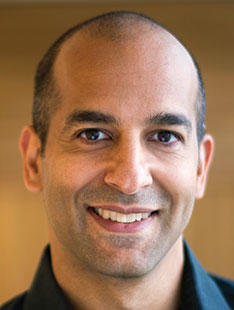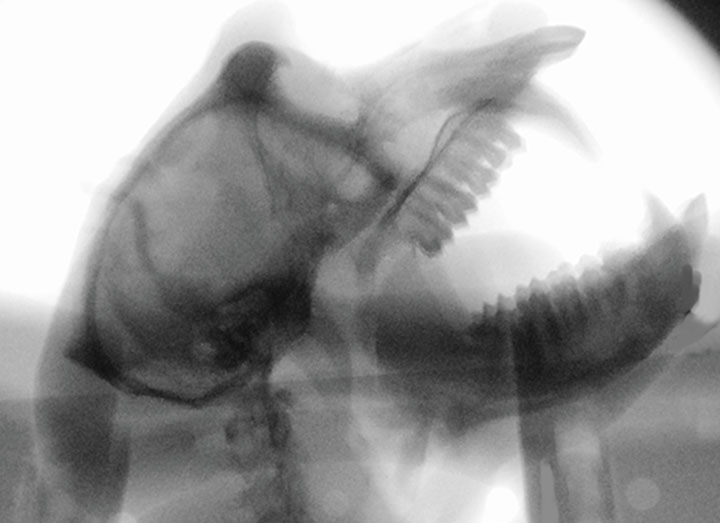Talking Monkeys: A Matter of the Mind
How do our closest animal relatives sound when they speak? “Some people think it sounds creepy,” says psychology professor Asif Ghazanfar, who recently published a study on macaque monkey vocalizations with W. Tecumseh Fitch, a professor of cognitive biology at the University of Vienna. As one part of their study, which was published in Science Advances in December, the scientists used monkey vocal-tract configurations to synthesize a version of what monkeys would sound like saying, “Will you marry me?”

The study’s main finding is that primates can produce the five vowel sounds that appear in words such as “bit,” “bet,” “bat,” “but,” and “bought.” Ghazanfar says that if they had fine motor control of their vocal apparatus, monkeys could produce all sounds of speech except for the “ee” sound in words such as “street” and “meet.”
Ghazanfar and colleagues made X-ray videos of three macaque monkeys vocalizing, eating, and yawning, as well as performing other facial actions, and traced outlines of the most extreme configurations that their vocal tracts could accommodate. They then estimated the monkeys’ phonetic space — their range of vowel-like sounds — by using computer programs to measure the resonance frequencies of the vocal tract, which change with different facial postures. While the researchers did not examine consonants, they assert that monkeys make consonant sounds such as “puh” or “muh” during lip smacking and other facial actions.
The experiments have demonstrated that primates’ vocal tracts are capable of intelligible language. Previous research suggested that limitations of monkeys’ vocal tracts prevented a full range of human vowels and thus speech.
Ghazanfar’s study, with its observation that macaques cannot produce the sound “ee,” does suggest that monkeys cannot, in fact, produce all human vowels, but argues that the vowels they can produce are sufficient to enable spoken language.
Going forward, Ghazanfar hopes to examine the differences between monkey and human brains that enable humans, but not monkeys, to use their vocal apparatus for speech. The complexities of motor control involved in producing vocalizations means that the difference is likely to be large-scale, involving many facets of the brain “as opposed to … [just] one area or other that exists in humans and doesn’t exist in monkeys,” he says.
LISTEN to the simulated monkey speech (Courtesy DailyMotion.com)
This Simulated Recording Of Monkey Saying 'Will... by GeoBeats












No responses yet